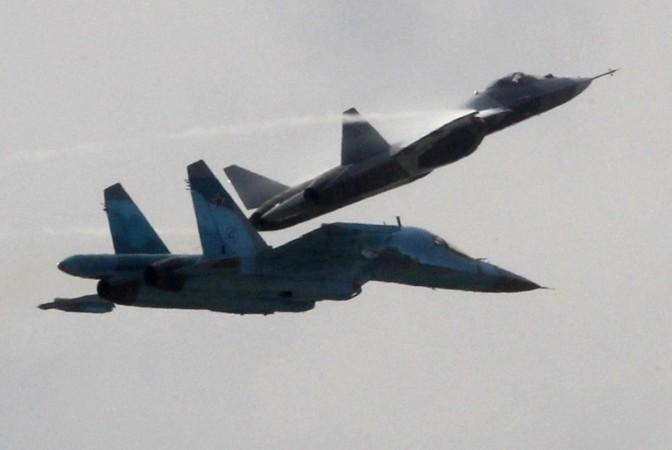
India and Russia have made headway in regard to the joint development of the much delayed fifth generation fighter aircraft (FGFA) project.
For several months, officials from both countries have been negotiating details on sharing work and related technicalities for jointly developing a stealth aircraft based on Sukhoi T-50 or PAK FA.
Russia is set to offer India with the critical technology to make new generation aircraft. India will reap "rich dividends" on the "quantum of technology on offer," the Economic Times reported quoting officials who were briefed about the talks.
"From a preliminary documents that was barely two dozen pages, we have agreed on a 650 page detailed plan that specifies exactly what all will be shared," the official told the daily.
India is expected to "shortly" sign the agreement that will see the country investing $4 billion over the years.
The current agreement goes into deeper details of joint production when compared with the Sukhoi Su-30 MKI's broad contract, the report noted.
The new aircraft will be tailor-made for India and the Indian Air Force (IAF) is expected to get over 100 aircraft.
Previously India had raised concerns over the development of new jet engine for the FGFA programme and the weapons package.
India has already spent $300 million for preliminary design contract, which was completed in 2013.
The current negotiations were accelerated in time for the upcoming summit level talks between PM Narendra Modi and Russian President Putin in Goa, next month.
Apart from the FGFA agreement, progress has also been made on production of Kamov KA-226T utility helicopters in India.
A new company is expected to be incorporated by October and a contract between Hindustan Aeronautical Limited (HAL) and Russian Helicopters is expected to be signed. HAL is expected to involve Indian private sector companies in the project in a big way. Indian private defence company, Kalyani Strategic Systems is a front runner to partner in the production of Kamov Ka-226's engines.











